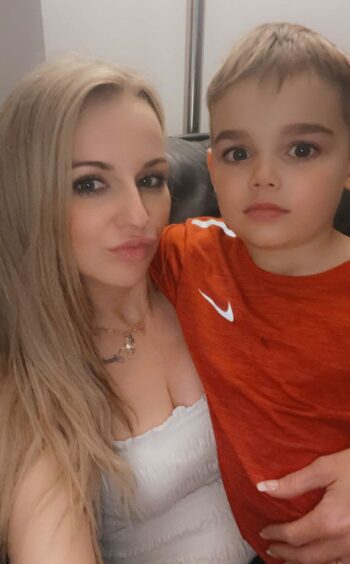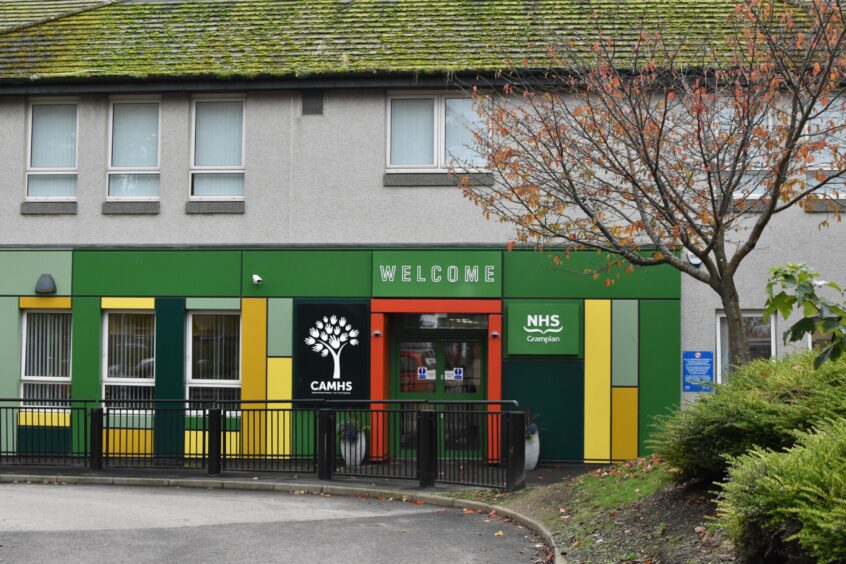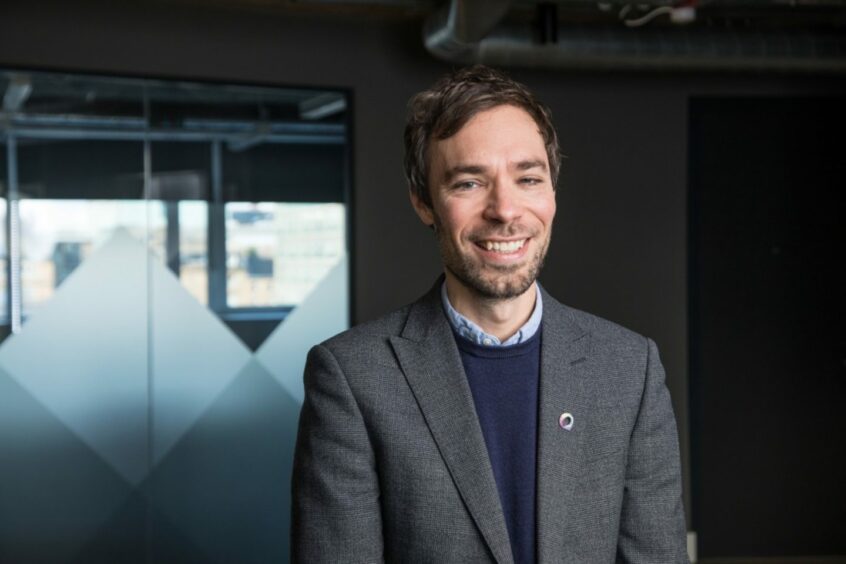Something changed in little Caleb Davidson not long after he turned six.
His mum, Leanne Davidson, told us that he withdrew from the world “overnight” about a year ago.
The “totally changed” wee boy refused to step foot over the front door for nine months despite the best attempts of his despairing loved ones.
And his mum is still searching for answers one year on.
Caleb, who Leanne described as a very clever and curious young boy, ended up completely withdrawing from his family, often not even leaving his bedroom.
“It was just overnight,” the single mum-of-four said.
“He just totally changed…
“I can’t get him out the house, into a car, I’ve not managed to get him to a doctor’s appointment. I’ve not managed to get him anywhere since last October.”
While Caleb would often get overwhelmed in social settings, Leanne said there were always coping methods that would help.
However, these stopped having any effect, and the family “need help now”.
Over the last year, Leanne said they have faced many challenges. Some of these include:
- Her son refusing to interact with his siblings and family, shutting himself away in his room
- Caleb refusing to leave the house even in the middle of power cuts, and not going to school for nearly a year
- Leanne having to pay £300 a month to organise school transport for her youngest child due to Caleb refusing to step near a school
‘Why did my boy change?’
Leanne said when Caleb was two-and-a-half, he was diagnosed with autism at the Peterhead Health Centre Child Development Unit.
But two years later, a different doctor took the diagnosis away.
“I’ve been fighting it ever since,” said the mum-of-four.
“There’s no doubt about it in my mind that my son is autistic. People who are in his life, they can all see it but they can’t open the doors to get me help.”
Caleb would often struggle in busy or social settings like at the supermarket or school. Wearing headphones or going for a walk would help him cope but that no longer has the desired effect.
“Things change for Caleb all the time,” Ms Davidson added. “They don’t ever stay the same.
“There’s always been different challenges throughout the years with him but never to this extent.
“It’s never been to the point where he’s lost interest in his toys and he’s shut himself away from everybody in the house.
“He’s always interacted in some way with his siblings and the family. To shut himself away where he doesn’t even want to engage with them is something that Caleb never did until October.”
‘I feel like I’m failing him’
Caleb struggles to sleep until 4am to 6am in the morning, has nighttime seizures and refused to leave the house for any reason until he was eventually persuaded to in July this year.
His mum said he has not set foot in school for nearly a year.
Even when they had power cuts, Leanne’s mum had to pick up her other children to take them somewhere warmer while she stayed behind with Caleb.
She added: “The thing is the longer it’s getting left, the harder it’s going to be.
“I really struggle because he’s quite unpredictable. I can’t go into a proper sleep or anything because he might get upset.
“I’ve had to get put on antidepressants. I just feel like I’m failing him. I’m phoning everybody and I don’t know where to turn. I’ve tried every avenue, is this how it’s always going to be?”
Charity steps in to try to help Caleb
While the family is supported by social and family support workers who have been “doing their best” to help, Leanne said it has been an uphill battle.
After several referrals were refused, Caleb is now beginning to have appointments with NHS Grampian’s Children and Adolescent Mental Health Service (CAMHS).
When asked to comment on the delay, a spokeswoman for CAMHS said “more than 90% of children and young people” are seen within 18 weeks of referral.
She added: “We carefully assess the needs of every child and young person in our care to make sure we offer the support we feel will be most beneficial to them.”
‘We’re at a standstill’
Leanne fears she is running out of time, and only a concrete diagnosis will help Caleb get the support he needs.
“I’m just at a standstill,” she sighed.
“It’s just an impossible situation at the moment.
“I’m a single parent, it’s been a really challenging time that I honestly just got to the point where I don’t know where to turn to.
“I’ve got other kids in the house, it’s affecting everybody. I just feel we’re just getting left and forgotten.”
In the last few months, Caleb’s behaviour has changed, however.
He managed to leave the house at the end of July to go to park, and now will sometimes go to the library, soft play centre and play with siblings and friends from school.
While his moods and behaviour have improved after getting support from advocate in ADHD and autism coach Nicola Cargill-Smith from More Than Autism – he still has yet to step foot in or near a school.
This means his mum has to stay home with Caleb and is currently paying £300 a month to help get her youngest child to school.
What does the expert say?
Mrs Cargill-Smith, who has autism and ADHD herself, said there has been little movement in getting him in class.
She said: “We have managed to get him outside again and engaging with some of his interests that he used to engage with before he had his regression.
“Socially the work we’ve been able to do has been really good for him, but that will only go so far.
“A lot of the supports in place that I would have hoped for by this point still aren’t.. And we’re still fighting hard.
“I’ve been really disappointed in the way Leanne has been treated up until now.”
Where to get help?
Mrs Cargill-Smith said this is a situation that “happens more than it should”.
She encouraged anyone who may have similar issues to try and seek help directly from local charities and support services.
These include ASK Autism North-east, her own coaching and advocacy firm More Than Autism or additional support services like Educational Psychology and CAMHS.
Rob Holland, director of the National Autistic Society Scotland said getting a diagnosis can be life changing for many families.
However, many – like Leanne and Caleb – feel they are left waiting for months or even years for answers.
Mr Holland said: “We know that long waiting lists are forcing families to turn to private diagnosis which, more often than not, is very expensive.
“In addition, a private diagnosis is not always accepted by NHS services or schools – something which many people find out too late.”
CAMHS also directed parents, teachers and carers of anxious children and young people to their online behavioural therapy programmes. These can be accessed using the code: Grampian.
Read our investigation into autism issues across the north and north-east







Conversation